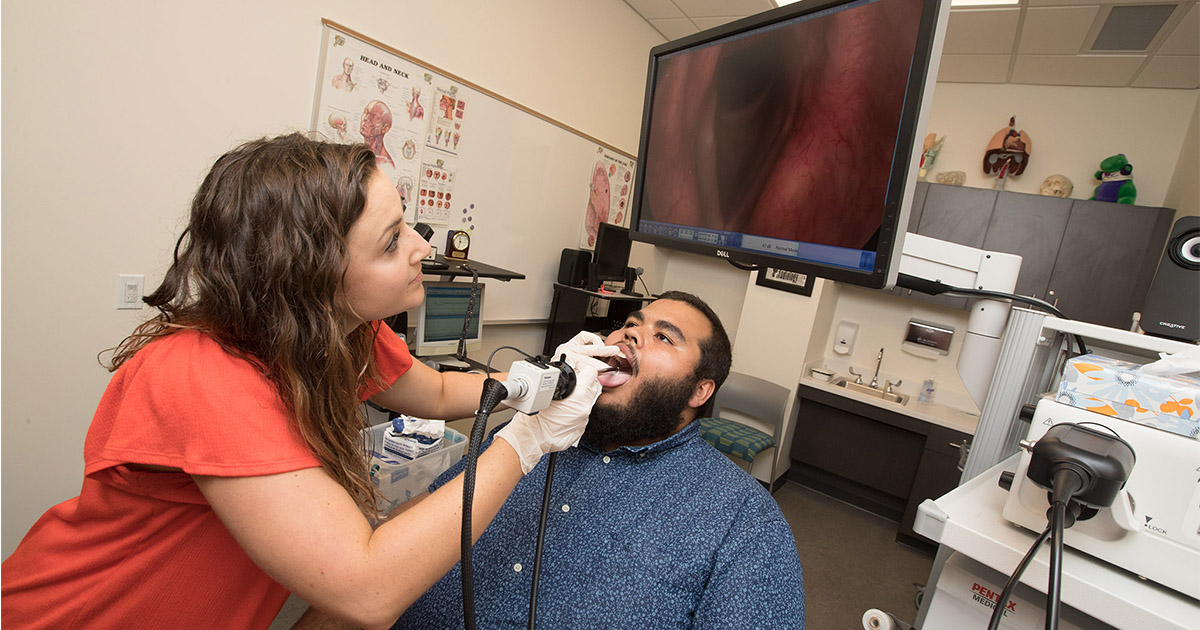What Makes a Good Speech Pathologist? Key Qualities to Look For
What Makes a Good Speech Pathologist? Key Qualities to Look For
Blog Article
Just How a Speech Pathologist Can Assist Improve Communication Skills
Effective interaction is a cornerstone of professional and personal success, yet many people face challenges that impede their capability to share themselves clearly. A speech pathologist is geared up to address these obstacles via targeted evaluation and treatment approaches tailored to every person's demands. By utilizing evidence-based healing strategies, they not only function to enhance speech and language disorders yet likewise improve overall communicative capability. Recognizing the diverse role of a speech pathologist reveals how their experience can transform lives, welcoming a more detailed exam of the certain approaches and outcomes related to their technique.
Understanding Interaction Problems
Understanding communication conditions is vital for acknowledging exactly how they impact individuals' capacity to express themselves and involve with others. Interaction problems encompass a variety of troubles that affect speech, language, and social communication, typically hindering effective communication. These conditions can emerge from numerous elements, including neurological problems, developmental delays, physical disabilities, or emotional issues.
Speech conditions might materialize as problems in expression, fluency, or voice manufacturing, impacting exactly how words are pronounced or talked. Language disorders, on the various other hand, include challenges in understanding or utilizing language, which can restrain both non-verbal and spoken interaction. Social communication disorders are characterized by troubles in the practical aspects of interaction, such as taking turns in conversation or understanding social hints.
The consequences of communication conditions are extensive, influencing not only the person's ability to convey ideas and feelings however likewise their social connections, instructional possibilities, and general lifestyle. Awareness of these conditions can promote empathy and support, encouraging effective methods for interaction and engagement. Recognizing the intricacies of interaction disorders is a critical step in the direction of promoting inclusivity and resolving the demands of those affected.
Role of a Speech Pathologist
Speech pathologists regularly play an essential function in identifying and dealing with communication conditions, using a series of evidence-based methods tailored to each individual's requirements. These experts function with individuals across the lifespan, from children with speech delays to adults recouping from strokes or traumatic mind injuries. Their proficiency includes a variety of communication issues, including articulation, fluency, voice, and language disorders.
In restorative setups, speech pathologists use structured interventions created to boost interaction skills. They may carry out techniques such as speech workouts, language video games, and social communication training to help with renovations in meaningful and receptive language capabilities. Speech Pathologist. Additionally, they educate customers and their families regarding effective communication strategies and adaptive methods to navigate daily interactions
Beyond straight treatment, speech pathologists collaborate with various other health care professionals, caregivers, and teachers to make sure an extensive strategy to treatment. They advocate for customers by offering resources and support, enabling individuals to attain their interaction objectives and boost their overall lifestyle. As professionals in the field, speech pathologists are necessary in cultivating reliable communication, promoting self-reliance, and enhancing social involvement for those with interaction difficulties.
Analysis and Diagnosis Process
The assessment and medical diagnosis process conducted by speech pathologists typically involves a detailed analysis to recognize communication disorders accurately. This process starts with a comprehensive medical history, where the clinician gathers relevant details regarding the individual's medical, educational, and developing background. Understanding the context of the person's communication difficulties is crucial for an accurate medical diagnosis.
Following the medical history, speech pathologists make use of standardized examinations and informal evaluations to examine various facets of communication, consisting of speech sound production, language understanding, meaningful language, and social interaction abilities. These evaluations are tailored to the person's age and details problems, offering useful information for analysis.
Monitoring is likewise an essential component of the assessment procedure, as it permits the clinician to see direct just how the specific communicates in natural settings. In addition, meetings with member of the family and teachers can supply understanding into the person's communication obstacles throughout various environments.
When the assessment is total, the speech pathologist synthesizes the searchings for to identify a medical diagnosis and advise ideal treatments. This complete evaluation process guarantees that individuals obtain targeted assistance customized to their unique interaction needs, laying the structure for effective therapeutic approaches.
Restorative Methods and Methods
Numerous therapeutic methods and methods are used by speech pathologists to deal with a variety of interaction problems efficiently. One extensively used method is expression therapy, which concentrates on fixing speech sounds through repeating and aesthetic hints. This strategy is specifically advantageous for people with speech audio disorders.
One more reliable method is language intervention, which enhances both responsive and meaningful language abilities. This may involve interactive tasks that advertise vocabulary development, syntax understanding, and conversational skills. Additionally, speech pathologists frequently use social skills training to boost practical language capabilities, allowing people to browse social interactions much more successfully.
Fluency shaping and stuttering adjustment techniques are specifically designed to help those experiencing fluency problems. These approaches aid customers develop smoother speech patterns and handle the emotional and physical elements of stuttering.
In addition, alternative and augmentative interaction (AAC) systems are used for people with serious interaction problems. These systems, which can include top article motions, symbols, or digital devices, supply crucial support for reliable interaction.
Advantages of Speech Therapy

Furthermore, speech therapy can assist in establishing essential listening and understanding abilities, fostering much better communication in conversations. Individuals with cognitive-communication disorders can also benefit, as treatment concentrates on reinforcing memory and analytic capacities, vital for effective interaction.
Another important aspect is the psychological support provided during treatment sessions. Speech pathologists develop a risk-free setting, motivating patients to conquer stress and anxiety and next page aggravation pertaining to their communication problems. This support can cause enhanced self-esteem and overall psychological wellness.
Moreover, early intervention through speech therapy can avoid further difficulties, ensuring that individuals reach their complete communicative potential. Overall, the advantages of speech therapy extend beyond plain speech enhancement, positively influencing numerous dimensions of life for those affected by communication difficulties.
Final Thought
In summary, speech pathologists play an essential duty in dealing with communication problems through assessment, medical diagnosis, and customized restorative treatments. By employing evidence-based methods, these professionals boost people' speech and language abilities, fostering boosted quality, fluency, and social interaction abilities. The advantages of very early treatment highlight the value of seeking aid from speech pathologists, as their experience can significantly enhance communicative potential, eventually resulting in higher success in both specialist and personal rounds.

Speech pathologists regularly play an essential duty in treating and diagnosing interaction disorders, using an array of evidence-based strategies tailored to each person's requirements. As specialists in the go right here area, speech pathologists are necessary in fostering efficient communication, advertising freedom, and improving social involvement for those with interaction obstacles.

Report this page